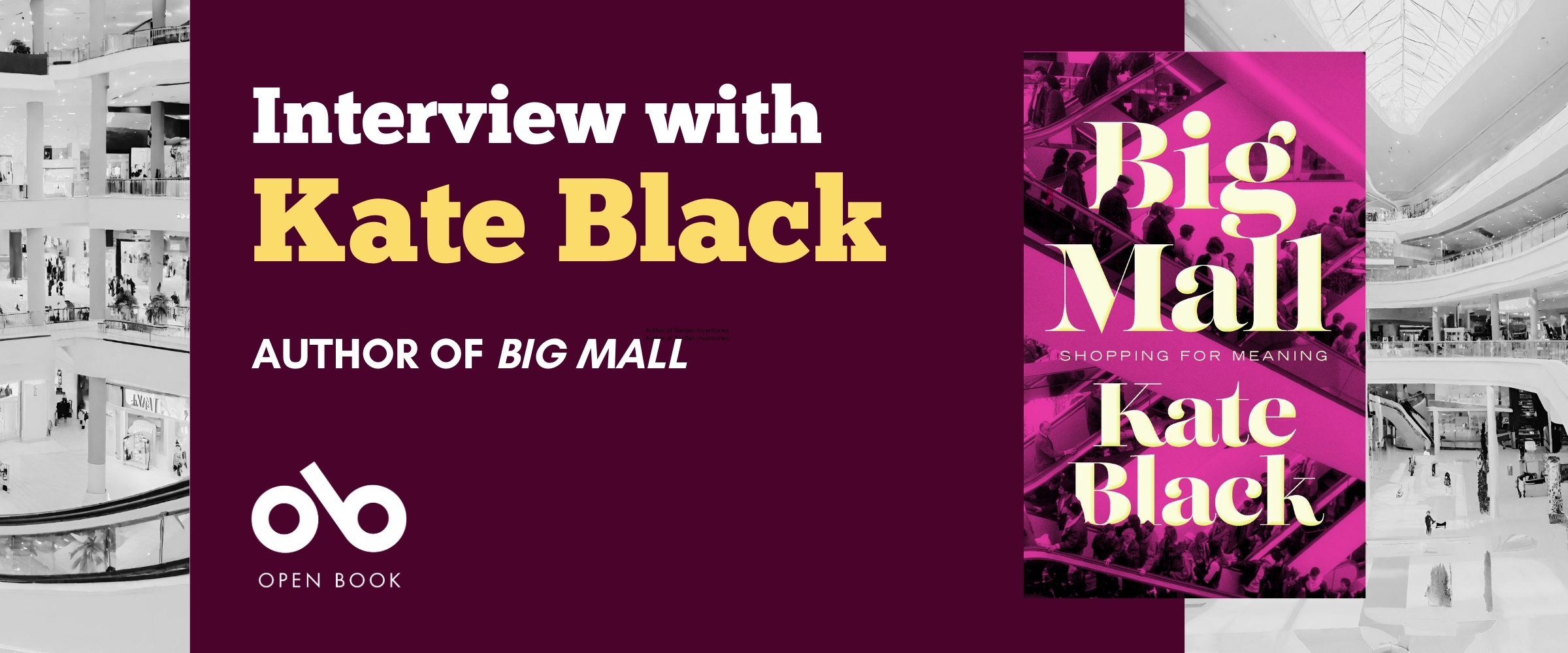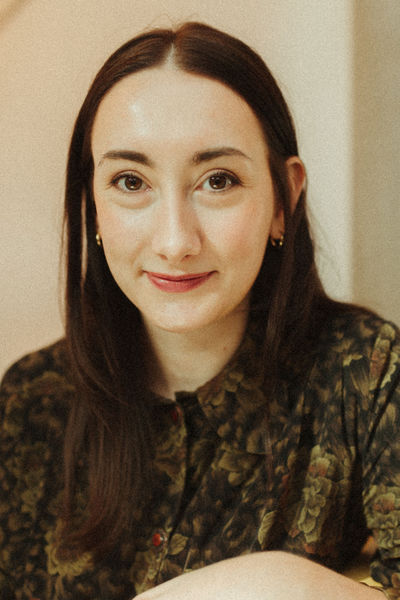"How Much is the Mall to Blame?" Kate Black Makes Sense of Shopping Malls in her New Nonfiction Book
Kate Black grew up in West Edmonton Mall, one of the largest shopping centres in North America, and an object of particular local bemusement, curiosity, disdain, and joy in the city of Edmonton.
As someone who knew the mall intimately, but had not truly considered what it was until one fateful happy hour at an Earl's, she realized that there is much more to this particular place than the crowds and clamour, and the spectacles of waterparks, rollercoasters, and dolphin shows. The mall is a place of commerce and capitalism, but also a site of pleasure and pain that has become part of (sub)urban legend.
In Black's new book, Big Mall (Coach House Books), she takes the reader on a journey to the heart of the mall, mixing a coming of age story with the broader questions of what it means to spend parts of a life in a place that is full with capitalist dread, but that can also be a very real site of subversive hope.
As Big Mall hits shelves (some of which will be in the West Edmonton Mall), we share this True Story Nonfiction interview with the author.
Open Book:
Do you remember the first moment you began to consider writing this book? Was there an inciting incident that kicked off the process for you?
Kate Black:
It was in 2018, at Earl’s happy hour, of all places. I had just started my MFA at the University of British Columbia and was complaining to my partner, Alex, about how I felt I had nothing to write about. Non-fiction is my genre of choice, but I’ve always had—for lack of a better word—envy for the lives of the writers I admire and the worldly, brilliant people I was meeting in my program. I’m from Alberta, I’ve lived a comfortable life, nothing dramatic or particularly exciting has happened to me. Obviously, it’s a very privileged way to be, but at the time, it didn’t feel like a deep well to draw upon as a writer.
But as we talked (and drank more margaritas), I realized I was wrong. Alberta is quite a strange and fascinating place. This becomes even more evident when you move away and come to understand how many people see it as a caricature of oil rigs, cowboys, and, of course, West Edmonton Mall. If you’re from Edmonton, the mall almost has a heavy, spectral quality. There’s so many urban legends and memories packed into this one place. There’s an element of sheepishness or embarrassment, too; Edmonton has tried really hard to craft certain narratives about itself, but whenever I talk to non-Albertans about my hometown, they seem to only know it for the mall. Alex and I thought that, given the mall’s heaviness, it was interesting that nobody had given it a book-length literary treatment yet: something that goes beyond reporting the facts of what the mall is and what’s happened there, but what it means to grow up in a space like this—like Edmonton, where so much of your life is lived in a building dedicated to consumerism, but also like the entire world in the twenty-first century, where it can feel impossible to imagine a world untouched by capitalism.
It took a long time after that to actually start writing, but that was the night the idea of Big Mall was born. I even came up with the title that night and said I’d like it to have a pink cover. Manifestation is real!
OB:
Is there a question that is central to your book? And if so, is it the same question you were thinking about when you started writing or did it change during the writing process?
Your CanLit News
Subscribe to Open Book’s newsletter to get local book events, literary content, writing tips, and more in your inbox
KB:
As I wrote and planned the book, I was hunting for ways to make meaning of events that have happened in malls. This usually manifested in the question “what is the point of all of this?!” while sifting through pages and pages of news articles documenting the different funny, tragic, and life-affirming things that have taken place in these structures. It was most challenging to answer this question, however, when addressing the more troubling aspects of mall history. For example, when someone loses their life in a mall, how much is the mall to blame? How much is capitalism or neoliberalism or greed to blame? I found it difficult to find sense in the senseless, banal acts of violence that weave throughout all malls’ histories.
The question stayed consistent throughout my writing, but my approach to addressing the question became more explicit as I got deeper into writing the book. I realized that the most authentic way to explore these questions was to show, on the page, my difficulty in making sense of the mall and a world that’s allowed malls to take shape.
OB:
What do you love about writing nonfiction? What are some of the strengths of the genre, in your opinion?
KB:
I love how much the idea of the self is negotiated in non-fiction. I find that to be the most daunting aspect of writing within the genre, as well.
In some ways, it’s an easier genre to hide behind than poetry or fiction. When I’m reading a novel, for example, I have to restrain myself from psychoanalyzing the author by extension of their characters’ choices and interiority. I’m self-conscious of this dynamic when writing outside of non-fiction. Even if I don’t think or feel the exact thoughts of the speaker I’m writing, I assume there’s a reader out there who is going to flatten us together. I have a line in Big Mall where I say that “I would like to tell people precisely how to understand me.” This desire for control must be one reason I’m drawn to non-fiction; I feel less vulnerable when there’s no ambiguity around what I am or am not revealing about myself. There’s safety, too, in telling myself exactly who I am. The world is chaotic and having a stable sense of self feels like a shelter.
This is where striving to write honest, meaningful non-fiction raises really interesting questions for me. Like, do I exploit this advantage of the genre? Do I choose to hide? I wrestle with the idea of authenticity a lot. If I reveal something about myself, how can I be sure it was a virtuous thing to do? Or have I permanently sacrificed some element of my interior life just to close a logical gap in an essay? Negotiating these questions forces me to confront aspects of myself that are unpleasant to think about: my beliefs, my motivations, my relationship to shame.
So, if I came to non-fiction to craft an impermeable sense of self to myself and others, I have found the opposite. The only constant I’ve found through this process is that my self-concept is always evolving; every piece that I’ve written has changed me in some way. It sounds corny, but reading and writing creative non-fiction has been such a gift in my life. I got into it because I like learning new things about the world, but it has ended up teaching me lessons I wasn’t brave enough to instigate on my own.
________________________________________________
Kate Black’s essays have been published in The Globe and Mail, The Walrus, and Maisonneuve. In 2020, she was selected as one of Canada’s top emerging voices in non-fiction by the RBC Taylor Prize and the National Magazine Awards. She grew up in Alberta, and lives in Vancouver.






